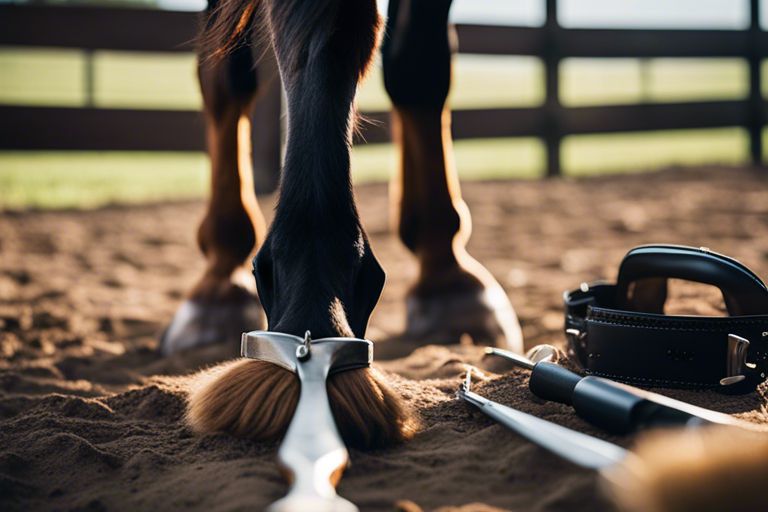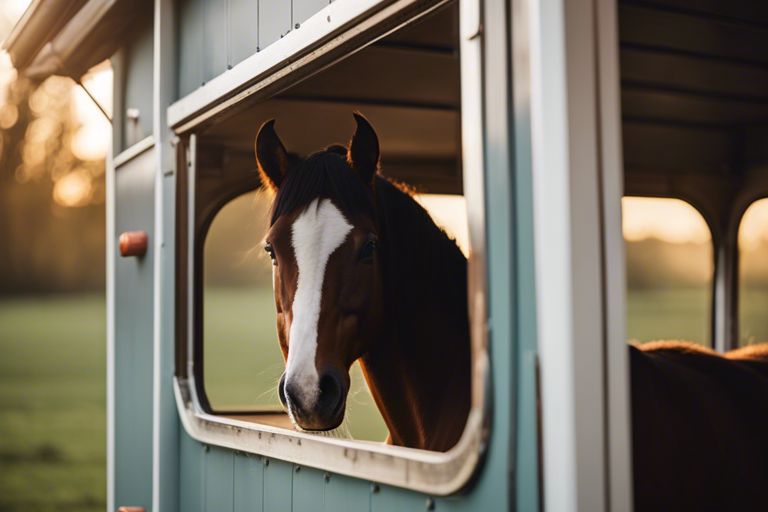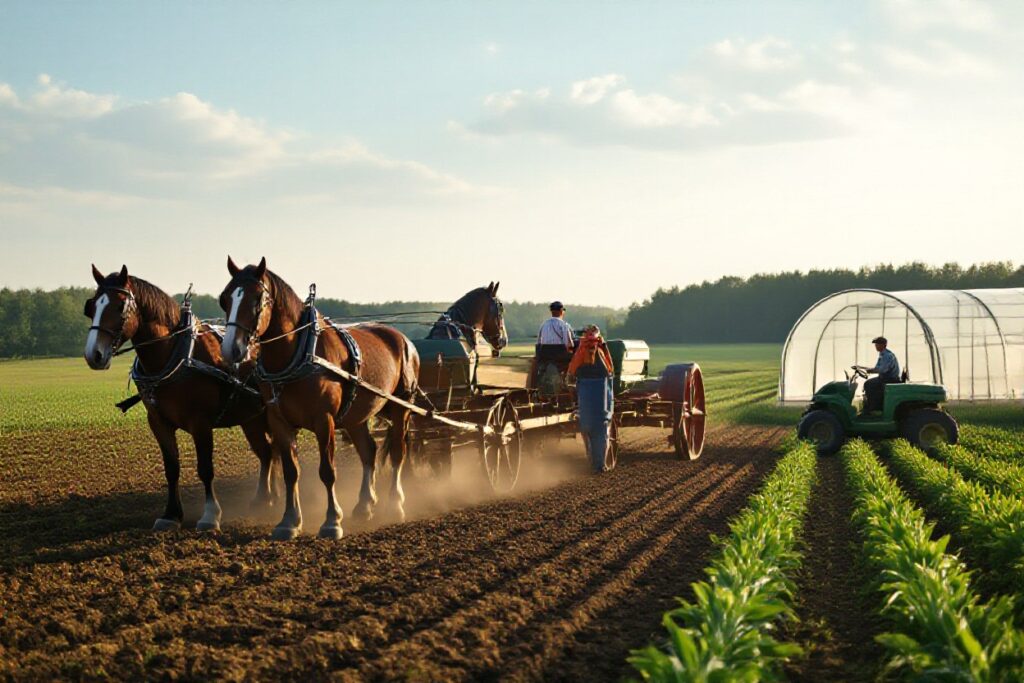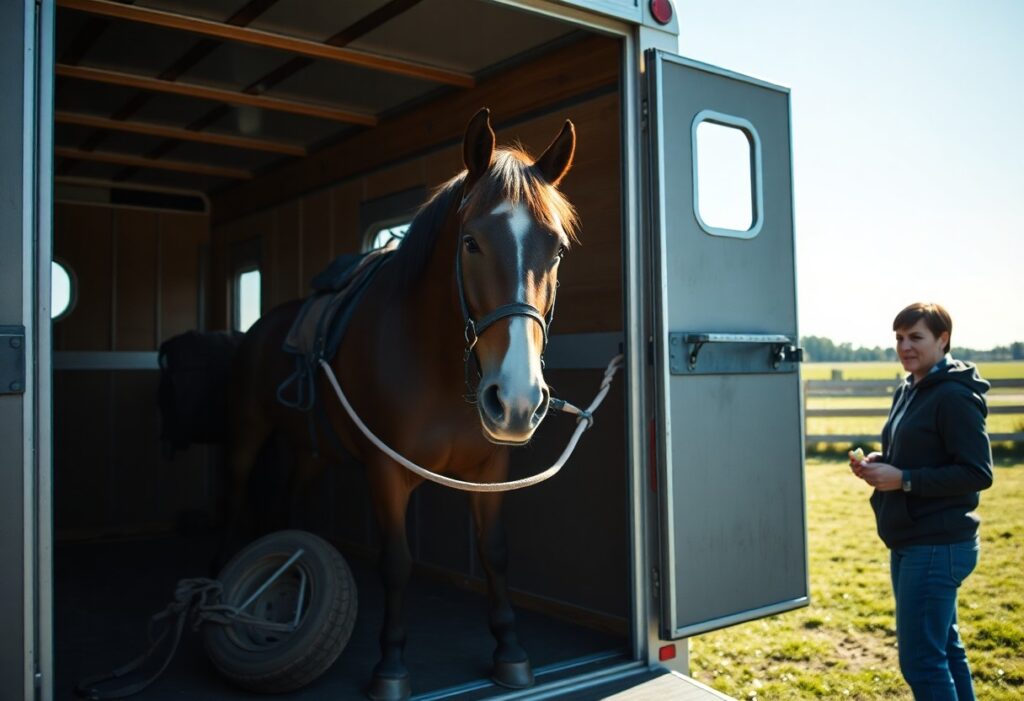You have made the decision to take your young horse to their first show, and while it may seem daunting, with the right preparation and mindset, you can set both yourself and your horse up for success. From introducing them to the show environment to ensuring their safety and well-being, this guide will provide you with vital tips to make the experience a positive one for both you and your equine companion.
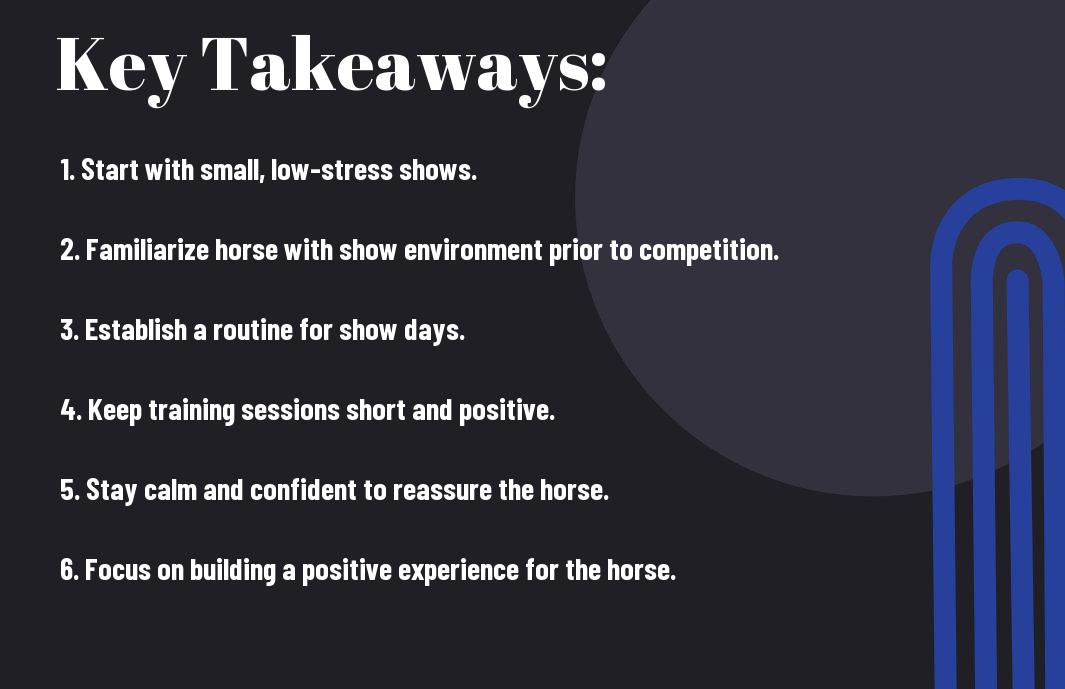
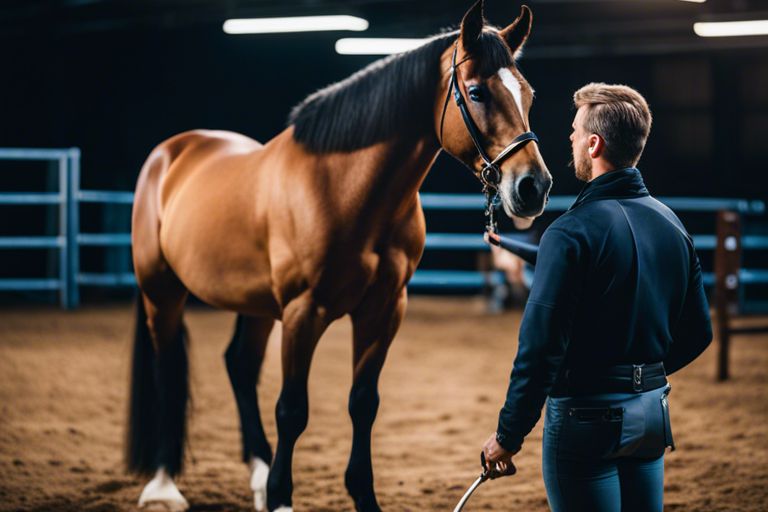
Preparation is Key
Before you even think about loading your young horse onto the trailer for their first show, it’s imperative to make sure you are fully prepared. Proper preparation will set both you and your horse up for success on the day of the show.
Getting Your Young Horse Ready
Young horses can easily get overwhelmed in new environments, so it’s crucial to gradually expose them to new sights and sounds to help them become more confident. Spend time working with your horse in different arenas and environments to help prepare them for the hustle and bustle of a busy horse show. Additionally, practice loading and unloading your horse from the trailer several times before the show to ensure they are comfortable with the process.
Essential Equipment and Supplies
With proper equipment and supplies, you can ensure that your young horse is safe and comfortable throughout the show day. Some imperative items to pack include a well-fitted bridle and saddle, grooming supplies, water buckets, hay, and any necessary medications or supplements. It’s also important to bring along a first aid kit specifically for your horse in case of any emergencies.
Building Confidence
You’re about to launch on a wonderful journey by taking your young horse to their first show. Building their confidence is crucial for a successful outing. Here are some tips to help you along the way.
Desensitization and Socialization
Any exposure to new environments, sights, and sounds will help desensitize your horse and build their confidence. Take your horse to different places such as local shows or even just around the neighborhood to familiarize them with new surroundings. Additionally, introducing your horse to other horses and people will help with socialization and ensure they are comfortable in various settings.
Positive Reinforcement Training
One effective way to build your horse’s confidence is through positive reinforcement training. Use rewards like treats, praise, or even just a gentle pat to encourage good behavior. This will help your horse associate positive experiences with new challenges, making them more willing to try new things.
A key aspect of positive reinforcement training is timing. It’s important to reward your horse immediately after they exhibit the desired behavior to reinforce it positively. Consistency is also crucial, so be sure to reward good behavior every time to build a strong association between the behavior and the reward.
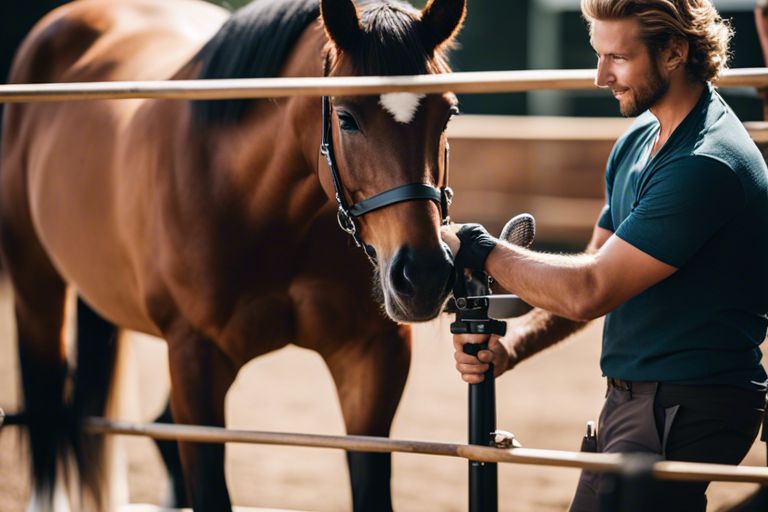
Travel and Logistics
All journeys have secret destinations of which the traveler is unaware. Before commenceing on your horse’s first competition, you must plan the travel and logistics carefully to ensure a smooth experience for both you and your equine companion.
Safe Transportation Options
With your young horse in mind, it is crucial to select a safe mode of transportation. Whether you are using a trailer or a horsebox, make sure it is well-ventilated, sturdy, and equipped with proper padding to prevent injury during transit. Additionally, ensure your horse is secure and comfortable throughout the journey, minimizing stress and the risk of injury.
Planning for Accommodations and Care
Care for your horse’s well-being should be a top priority throughout the trip. Make sure to pack enough hay, feed, and water for the duration of the show, taking into account any unforeseen delays. Additionally, consider the accommodation arrangements at the show grounds. Find out if there are suitable stables or areas for your horse to relax and rest before and after the competition.
The comfort and care of your horse during the competition are important for their well-being. Monitor them closely for any signs of stress or discomfort, and ensure they have access to water and a comfortable place to rest between events. By planning ahead and prioritizing your horse’s needs, you can set them up for a successful and enjoyable first show experience.
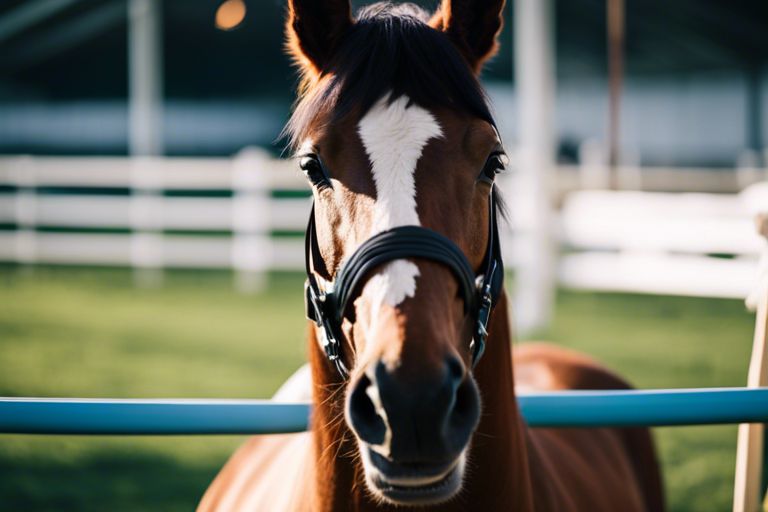
The Day of the Show
Pre-Show Preparation and Checklists
All the preparation you’ve done leading up to this day will pay off. One of the most crucial things to remember is to double-check your checklist. Make sure you have all the necessarys such as tack, grooming supplies, water, hay, and any necessary paperwork. Remember to bring extra equipment like lead ropes and blankets in case of emergencies. Arrive early at the venue so you have enough time to settle in and familiarize your horse with the surroundings.
Managing Your Horse’s Stress and Anxiety
An necessary part of your success at the show will be how well you manage your horse’s stress and anxiety. Anxious horses can be challenging to handle, so it’s crucial to remain calm and composed yourself. Give your horse plenty of reassurance and positive reinforcement to help them feel more at ease. Take things slow and allow your horse to acclimate to the new environment before expecting too much from them.
Recall, your horse may feed off your energy, so staying calm and collected will help keep them relaxed as well. Pay attention to your horse’s body language and adjust your approach accordingly. By staying patient and understanding, you can help your horse navigate their first show experience with confidence.
In the Ring
Tips for a Successful First Class
To set yourself up for success in the ring with your young horse, make sure to arrive early to allow ample time for warm-up and acclimatization. Focus on your communication with your horse, maintaining a calm and reassuring demeanor to instill confidence in them. Remember to keep your aids clear and consistent, helping your horse understand what is expected of them.
- Keep a steady rhythm throughout your ride
- Stay patient and give your horse time to process and respond
- Encourage and reward positive efforts
After completing your first class, take the time to praise your horse and reflect on the experience. Learning and growth occur with each outing, regardless of the results.
Handling Nerves and Unexpected Situations
Unexpected situations can arise in the ring, causing nerves to escalate for both you and your horse. One way to maintain composure is to focus on your breathing, taking deep breaths to center yourself and project a sense of calm to your horse. Remember that horses can sense your emotions, so by staying composed, you can help reduce stress for your equine partner.
Class environments can be filled with excitement and energy, both of which can affect your horse. It’s crucial to remain alert and aware of your surroundings to anticipate and prevent any potential hazards. Always put safety first and trust in the training you and your horse have done leading up to this moment.
After the Show
Not only does the show day matter, but what you do afterward is equally important. Here are some key tips for taking care of your young horse and setting goals for future performances.
Post-Show Care and Recovery
For optimal recovery, be sure to cool down your horse properly after the show. A gentle walk and some stretching exercises can help prevent cramps and stiffness. Once back at the barn, check for any injuries or soreness. Hydration is crucial, so ensure your horse has access to clean water and consider offering electrolytes if necessary.
Evaluating Performance and Setting Goals
Post-show, take some time to reflect on your performance. Think about what went well and where there is room for improvement. Did your horse respond well to your cues? Were there any behavioral issues that need addressing? Use this feedback to set realistic goals for your next show.
Goals: Setting achievable goals is important for your progress in training and competition. Whether it’s improving your scores in a certain discipline or mastering a new skill, having clear objectives will keep you focused and motivated. Remember to celebrate small victories along the way as you work towards your larger goals.
Final Words
Considering all points mentioned in this article, taking a young horse to their first show can be a rewarding experience if done with care and preparation. Remember to start with basic groundwork and training, gradually introducing your horse to new environments and experiences. Building a strong relationship based on trust and communication will go a long way in ensuring a successful and positive show experience for both you and your horse.
By following these tips and taking things slowly, you can help your young horse feel comfortable and confident in the show ring. Remember to stay patient, stay positive, and most importantly, enjoy the journey of helping your horse reach their full potential. With time and practice, you and your young horse will be ready to shine in the show ring and create lasting memories together.
FAQ
Q: What should I do to prepare my young horse for their first show?
A: Before the show, make sure your young horse is comfortable with traveling in a trailer, being in a new environment, and being around other horses. Practice loading and unloading in different locations and exposing them to new sights and sounds.
Q: How can I help my young horse feel more relaxed at the show?
A: Create a familiar environment for your young horse by bringing their usual feed, water, and bedding. Establish a routine at the show that mimics their daily schedule at home to help them feel more comfortable.
Q: What should I focus on during my young horse’s first show ride?
A: Focus on maintaining a calm and confident demeanor to help your young horse feel at ease. Keep the ride short and positive, focusing on building their confidence and trust in you as their rider.
Q: How can I introduce my young horse to the show arena and warm-up area?
A: Spend time walking your young horse around the show grounds to help them become familiar with the sights and sounds. Gradually introduce them to the show arena and warm-up area, allowing them to explore and acclimate at their own pace.
Q: How should I handle any unexpected behaviors from my young horse at the show?
A: Stay calm and patient when faced with unexpected behaviors from your young horse. Redirect their focus with simple exercises or take a break to allow them to relax. Seek assistance from a trainer if needed to address any behavior issues.
